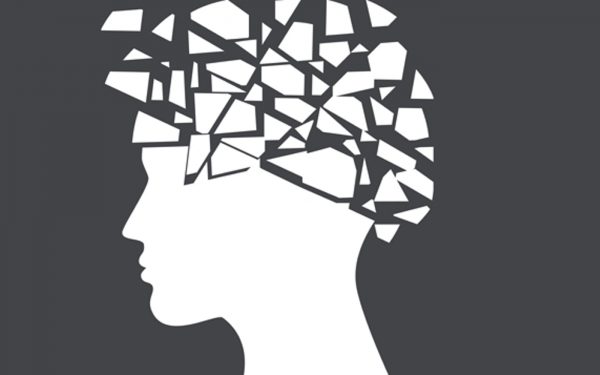I’m on my way to La Hacienda RV Resort in Austin, TX with my hubby and Bella. Fortunately, I have a mobile hotspot which allows me to work on my laptop. I just checked my emails and found out some good news. The new Channeling Erik mobile app is now available for Android phones via Google Play. It’s completely free, so download it and check it out. Sometimes it takes some time for all the content to migrate over, but if, after a few days, you find any glitches, let me know. Click HERE for the download! iPhone users, be sure you download the app in the app store!
Don’t forget about Erik’s Hour of Enlightenment radio show tomorrow at 5:00 PM PT/7:00 PM CT/8:00 PM ET. No more than 15 minutes before the top of the hour, call 619-639-4606 to ask Erik your question. Two ways to listen: Click on the “Listen” icon on the right sidebar of the blog or click HERE.
Robert: Hello!
Me: How are you doing?
Robert: Oh, I’m doing good, doing fine.
Me: Good. Well, we’ll just get right into it.
Robert: Okay.
Me: Hi Erik!
Erik: Hi, Mom.
Me: How are you doing, sweetie?
Erik: How do you think?
Me: Good. How could you not be doing well?
Erik: Actually, I’m doing terrible!
Me: Oh, bull.
Erik (chuckling): That’s right.
Me: Okay, so it is bull.
Robert: Erik’s full of bull.
Me: Of course he is! Okay, I have a bunch of little questions that I want to do in one session, but we also have the opportunity to, well, first of all, I think Erik wanted to discuss something. Was it hate? But also I was thinking about bringing in David Bowie.
I pronounce it Boo-wee by accident, which makes me laugh.
Robert: He was just talking about David Bowie earlier.
Me: What do you want to do first, Erik?
Erik: We were going to talk about trauma, not hate.
Me: Oh, Trauma! There we go! That’s it.
Erik: But it’s kind of associated with hate.
That’s right, throw me a lifeline.
Me: Okay. What do you want to do first, Erik?
Erik: Let’s talk about trauma first.
Me: Let’s do it.
Erik: First, people need to understand that they can never heal from their trauma unless they address the underlying shame attached to it.
Me: Oh, that was it!
Erik: You know, we keep punishing ourselves for something we experienced. We keep blaming ourselves and feel regret because we feel like we made the choice that made the trauma happen in certain instances. We think something happened to traumatize us so maybe we deserved it in some way. All of that is attached to shame.
Me: Well, why are people like that? Why do they blame themselves for example if they get raped or robbed at gunpoint? Why would they feel shame associated with that?
Erik: It has to do with a lack of self-esteem and self-worth. It doesn’t always make sense. In some way, on an unconscious level, they believe that whatever happened to them, in some cases they believe they had it coming to them.
Me: Ah.
Erik: And that can come from a variety of sources, Mom. It can come from what society says about certain things. Sometimes the shame can be rooted in the fact that you’re still feeling traumatized by it, and society tells you to get over it.
Me: For me, the trauma of finding you after you shot yourself—
Erik: Fuck yeah.
Me: Yeah, society says, “Okay, it’s been this many years. Get over it.” But that’s just impossible to get over.
Erik: It’s not even fair. The reason people do that in the first place is because they have their own shame attached to the issue of trauma. Trauma brings up a sense of vulnerability, and people are generally very afraid of vulnerability.
Me: Why?
Erik: Because our nature is predatory, and a predator shouldn’t be vulnerable. If they aren they’re going to become prey!
Robert: I never thought about it that way, Erik!
Me: It’s almost like a primitive instinct.
Erik: Yeah, and then if you want to think about it in terms of the culture itself, there’s a hierarchy structure, and the leader is not typically vulnerable. In human history, the leader isn’t vulnerable. If they are, then they’re going to be taken down.
Me: Except maybe leaders like the Dalai Lama.
Erik: Yeah, but I’m talking about a structure like a tribe.
Me: Yeah, okay. I see.
Erik: The Dalai Lama is more of the spiritual or religious based. He’s actually a harbinger of what’s to come.
Me: Oh, good. Okay, so what do people do to get over the trauma by mitigating the shame attached to it?
Erik: How do you get over the shame?
Me: Yeah.
Erik: You have to start looking at yourself and see what you’re doing to hold back who you are. That’s a starting point for a lot of people. Sometimes with people, the shame itself, they’ll stay rooted in because maybe there’s something they used to love, but now they just don’t have the ability to love anymore like music or poetry or movies or things like that. They might get involved with those things, but those things remind them of what it felt like to be happy. Then the shame wells up and they go, “Oh, I don’t deserve that” because maybe of the person who died or what happened to them or someone else and they want to keep reliving that experience over and over again. That’s because the grief is still so strong.
Me: Well, that’s true in our case. For some reason, ever since you died, Erik, I just can’t enjoy music. It’s like nails on a chalkboard. It’s irritating.
Erik: Right because—I’ll just say it this way, Mom—that’s an example of how you’re allergic to happiness. You’ve become allergic to it because maybe on some level you believe you don’t deserve it.
Me: Well, why would I believe that?
Erik: It’s more of an unconscious thing. It’s the fact that if you think you’re happy, if you allow yourself to be happy, you have survivor’s guilt. That’s one way I can put it.
Me: That’s true. It’s like how can I be happy when my son is gone and in such a horrible way?
Erik: That’s right.




